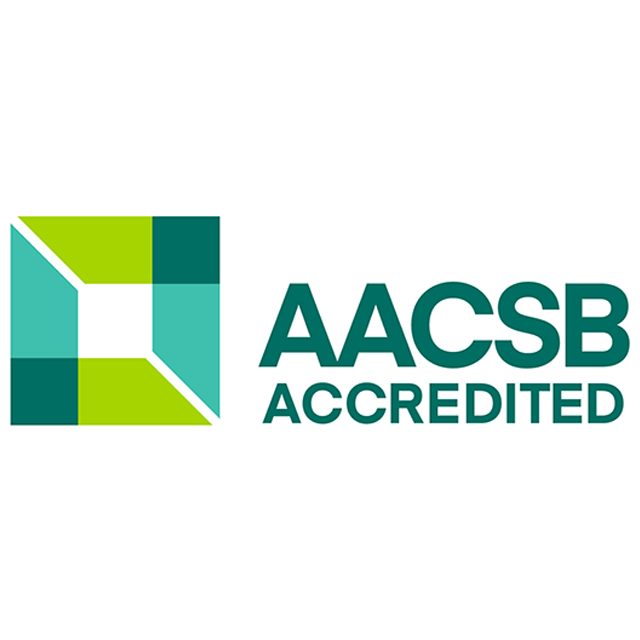Accountancy
Accounting Excellence Based in Ethical Leadership — Expand your career opportunities and maximize your earning potential with Duquesne University's Master of Science in Accountancy (MAcc). Our degree is distinct among auditing and accounting programs in Pennsylvania and equips accounting professionals to become expert analysts and ethical business leaders. The program is accredited by AACSB International and endorsed by the Institute of Internal Auditors (IIA).
Competitive Accounting Curriculum
The MAcc program provides competitive curriculum built on the cornerstones of small
classes, hands-on learning, ethical problem-solving, and individualized attention
from faculty and mentors. The program also contains a breadth of courses in areas
like forensic accounting, auditing, financial reporting, and information systems.
Flexible Program
The program starts in the fall semester and can be completed in one year with daytime and evening courses or in two years with evening courses. Duquesne University's proximity to downtown Pittsburgh is convenient for working professionals taking evening courses.
Program Information
Expand your career opportunities and maximize your earning potential with Duquesne University's Master of Science in Accountancy (MAcc). Our degree is distinct among auditing and accounting programs in Pennsylvania and equips accounting professionals to become expert analysts and ethical business leaders.
Program Type
Major
Degree
Master's
Duration
2-5 Semesters
Required Credit Hours
30
Modality
Online
In-Person
Hybrid
More in this Program
From Our Alumni
Propel your career to new heights with over $220K increased earning potential with
optional professional certification. Your M.S. in Accountancy can be combined with
your undergraduate degree to meet the 150-credit-hours to sit for the Certified Public Accountant (CPA) licensure in Pennsylvania and many other states.* You can also pursue Certified Management Accountant (CMA), Certified Internal Auditor (CIA), Certified
Fraud Examiner (CFE), and Certified Information Systems Auditor (CISA) licensures. Graduates of Duquesne University's Master of Science in Accountancy program excel
on certification exams, with pass rates exceeding state and national averages for
the CPA exam.
Duquesne is recognized as an endorsed school of internal auditing by the
Institute of Internal Auditors (IIA). Internal Auditing Education Partnership Program
(IAEP) endorsed programs require a rigorous application process and monitoring by
the Internal Audit Foundation and volunteers.
The 30-credit Master of Science in Accountancy consists of 24 credits of required
courses and 6 credits of electives. The program is accredited by AACSB International and endorsed by the Institute of Internal Auditors (IIA). Discuss elective options with your Student Success Coach. The Association to Advance Collegiate Schools of Business (AACSB) awarded Duquesne's
undergraduate and graduate Schools of Business its full accreditation. The AACSB accreditation
is recognized as a global mark of distinction. Less than 6 percent of the world's
more than 1,200 business schools have passed the rigorous review necessary to earn
the honor. Accounting Theory and Practice
Preparation for Professional Accounting Certification
In addition to professional licensures, you will join an alumni network with international
Big Four accounting firms, national and regional CPA firms, corporations, government
agencies, and nonprofit organizations.
*CPA exam criteria varies by state. Visit National Association of State Boards of Accountancy (NASBA) to learn more.
IIA-Endorsed Program
Beta Alpha Psi
Curriculum
Discuss elective options with your Student Success Coach.
Accreditation
Learning Outcomes
Learners will demonstrate the technical and analytical knowledge and skills required
to attain professional certifications such as the Certified Public Accountant (CPA)
and Certified Fraud Examiner (CFE) certifications.
Learners will demonstrate knowledge of accounting theory and practice required to
attain professional certifications such as the Certified Public Accountant (CPA) and
Certified Fraud Examiner (CFE) certifications.
Leadership and Communication Skills
Learners will demonstrate the communication skills that are expected for a successful
career in the accounting/auditing profession.
Ethical Responsibility
Learners will demonstrate a thorough understanding and appreciation for the ethical
duties and responsibilities of the accounting profession.




